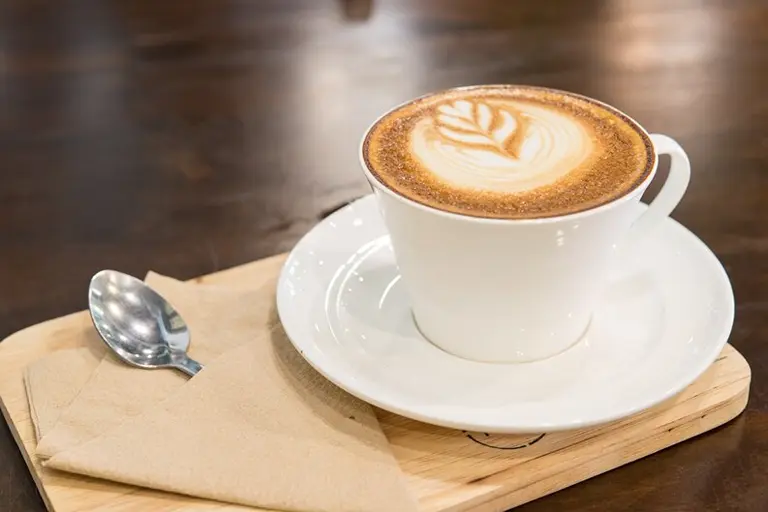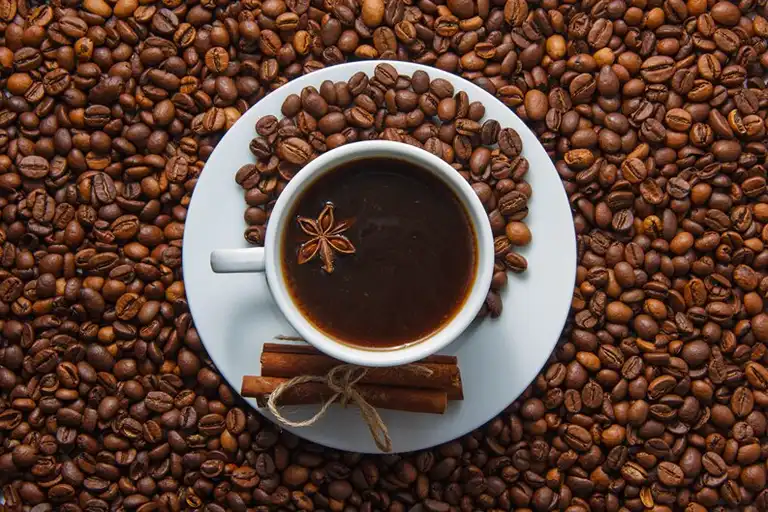A Comprehensive Understanding Of, How Much Caffeine In Espresso Shot

In this comprehensive article, you will know How Much Caffeine In Espresso Shot? Coffee is a dark liquid that gives us energy in the morning, afternoon, and late at night. One popular type of coffee is espresso, which is loved for its strong flavor and smooth texture. But espresso is not just about taste. The caffeine in espresso is a big part of why people like it. So, how much caffeine is in an espresso shot? To find out, we need to learn more about the coffee bean and what affects the amount of caffeine in espresso.
Understanding Espresso
Invented in Italy in the early 20th century, espresso is more than just coffee. It’s a method of brewing coffee that involves forcing a small amount of nearly boiling water under high pressure through finely-ground coffee beans. This technique creates a thicker, more concentrated coffee with a high amount of dissolved solids, crowned with a layer of velvety foam known as ‘crema’.
The Caffeine Profile of Espresso
Caffeine is a natural stimulant found in plants like coffee. It can make you more alert, improve your mood, and help you think better. In a regular shot of espresso, which is about 1 oz or 30 ml, there is usually around 63 milligrams of caffeine. But this amount can change depending on things like the type of coffee bean, how dark it was roasted, how it was brewed, and the specifications of the espresso machine.
Dissecting the Factors That Influence Caffeine Content
Type of Coffee Bean
Coffee beans come in many types, but the most common ones are Arabica and Robusta. These two types have different amounts of caffeine. Robusta beans have about twice as much caffeine as Arabica beans. So, if your espresso is made from Robusta beans, it will have more caffeine than one made from Arabica beans.
Coffee Bean Varieties and Caffeine
To expand further, Arabica beans, known for their sweet, delicate flavor, contain a caffeine content of 1.2% to 1.5%. In contrast, Robusta beans, characterized by their strong, bitter taste, carry a heftier caffeine content of 2.2% to 2.7%. This difference alone can significantly impact the caffeine quantity in your espresso shot.
Roasting Process: How Much Caffeine In Espresso Shot
A common myth among coffee drinkers is that darker roasts are synonymous with higher caffeine content. The reality is different. The roasting process marginally affects the caffeine content of the bean, if at all. However, dark roasts have a more robust, smoky flavor that can create the illusion of a stronger, hence more caffeinated, coffee.
Roasting and Caffeine – A Deeper Dive
During roasting, coffee beans lose water and expand in size, but their caffeine content remains relatively stable. In fact, since darker roasts result in a larger, lighter bean, a measure by volume (like a scoop) of dark roast coffee would contain slightly less caffeine compared to a lighter roast. Conversely, when measured by weight, darker and lighter roasts are virtually equivalent in caffeine content.
Brewing Method: How Much Caffeine In Espresso Shot

How you make your coffee affects how much caffeine it has. Espresso brewing is a special way of making coffee where hot water is forced through tightly packed, finely ground coffee. This method extracts a lot of caffeine quickly, so espresso has more caffeine than drip or French press coffee.
| Brand Name | Caffeine Content (per 8 oz) |
|---|---|
| Folgers Classic | 95 mg |
| Maxwell House | 100 mg |
| Dunkin’ Donuts | 143 mg |
| Starbucks Pike Place | 155 mg |
| Lavazza Espresso | 63 mg (per 1 oz shot) |
| Illy Espresso | 65 mg (per 1 oz shot) |
| Nespresso Original Line – Arpeggio | 55-65 mg (per 1 oz shot) |
| Nespresso Original Line – Ristretto | 50-80 mg (per 1 oz shot) |
| Nespresso Original Line – Roma | 60-80 mg (per 1 oz shot) |
| Nespresso Original Line – Volluto | 70-80 mg (per 1 oz shot) |
| Peet’s Coffee – Major Dickason’s Blend | 110 mg |
| Caribou Coffee | 180 mg |
| Death Wish Coffee | 728 mg |
| Green Mountain Coffee Roasters – Breakfast Blend | 120 mg |
| Green Mountain Coffee Roasters – Dark Magic | 130 mg |
| Green Mountain Coffee Roasters – Colombia Select | 140 mg |
| Green Mountain Coffee Roasters – Nantucket Blend | 115 mg |
| Peet’s Coffee – Major Dickason’s Blend | 110 mg |
| Peet’s Coffee – French Roast | 120 mg |
| Peet’s Coffee – Café Domingo | 115 mg |
| Peet’s Coffee – House Blend | 110 mg |
| Community Coffee – Breakfast Blend | 150 mg |
| Community Coffee – Café Special | 120 mg |
| Community Coffee – Signature Blend Dark Roast | 120 mg |
| Community Coffee – House Blend Medium Roast | 120 mg |
| Tim Hortons | 80 mg |
| McCafé | 145 mg |
| Eight O’Clock Coffee | 155 mg |
| Kicking Horse Coffee – Kick Ass | 85 mg |
| Kicking Horse Coffee – Three Sisters | 85 mg |
| Kicking Horse Coffee – Grizzly Claw | 85 mg |
Caffeine’s Impact on Health
While the primary reason for consuming caffeine is its psychoactive effects, it’s essential to understand its broader impact on health.
Positive Effects of Caffeine
Caffeine not only makes you more alert and improves your mood, but it also has other health benefits. It can help you lose weight by speeding up your metabolism, improve your physical performance by stimulating your nervous system, and even protect against diseases like Parkinson’s and Alzheimer’s.
Delving into the Science of Caffeine’s Health Benefits
Scientific studies show that caffeine is good for you. It helps burn fat and speeds up your metabolism. Caffeine also improves how well you exercise. It wakes up your nervous system, telling your fat cells to break down fat and raises adrenaline levels to get you ready for intense workouts.
Potential Risks of Caffeine
Caffeine has many benefits, but too much can cause problems like restlessness, trouble sleeping, a fast heartbeat, and digestive issues. In rare cases, having too much caffeine can even cause seizures. It’s important to use caffeine responsibly and know how much you can handle.
How Much Caffeine Is Too Much?
According to the U.S. Food and Drug Administration (FDA), most healthy adults can safely consume up to 400 milligrams of caffeine a day. This amount roughly equates to four or five espresso shots. However, individual caffeine sensitivity varies, and some people may experience side effects at lower doses.
Wrapping Up: How Much Caffeine In Espresso Shot
The seemingly simple espresso shot is, in fact, a complex blend of art and science. Its caffeine content is not merely a fixed number but a variable influenced by a multitude of factors ranging from the coffee bean type to the brewing method.
Next time you drink espresso, appreciate not only its taste but also the many factors that determine how much caffeine it contains. Knowing what’s in our coffee enhances the overall experience.
Explore More:
The Journey of Coffee: From Bean to Your Cup
Introduction: How Much Caffeine In Espresso Shot
- Introducing the topic and importance of understanding the coffee journey
The Coffee Plant: Where It All Begins
- Explanation of the coffee plant, species, and where it grows
The Harvesting Process
- A detailed look at how coffee beans are harvested
Processing the Coffee Cherries
- Discussion on how coffee cherries are processed, including dry and wet methods
Drying, Milling, and Sorting
- Description of the drying process, hulling, milling, and sorting of coffee beans
Tasting and Grading
- Explanation of how coffee is tasted and graded for quality
Roasting the Coffee: How Much Caffeine In Espresso Shot
- Deep dive into the roasting process and how it impacts flavor
Packaging and Distribution
- Overview of how coffee is packaged, shipped, and distributed to various outlets
Brewing and Serving
- Look at how coffee is prepared and served in different cultures and coffee shops

Mastering the Art of Coffee Tasting
Introduction: How Much Caffeine In Espresso Shot
- Introducing the importance of coffee tasting and how it enhances the coffee-drinking experience
Understanding the Basics of Taste
- Explanation of the five basic tastes and how they relate to coffee
The Coffee Tasting Wheel
- Discussion on the coffee tasting wheel and how it’s used to describe the coffee flavor
Sensory Experience: Aroma, Taste, and Body
- Overview of the sensory experience when tasting coffee, including aroma, taste, and body
Practical Steps to Coffee Tasting
- A step-by-step guide to coffee tasting, including what to look for and how to describe it
Coffee Tasting Notes
- Look at common tasting notes for different types of coffee
Hosting a Coffee Tasting
- Tips for hosting a coffee tasting at home or work
Health in a Cup: Exploring Coffee’s Health Benefits and Risks
Introduction: How Much Caffeine In Espresso Shot
- Introduction to the health effects of coffee and why it’s important
The Nutritional Profile of Coffee
- Overview of the nutrients and compounds in coffee
Health Benefits of Coffee
- Deep dive into the health benefits of coffee, including mental and physical benefits, disease prevention, etc.
Potential Risks and Side Effects
- Look at potential health risks and side effects of coffee, including sleep disruption, heart disease risk, etc.
Moderation and Personal Tolerance
- Discussion on the importance of moderation and understanding personal tolerance to caffeine
FAQs: How Much Caffeine In Espresso Shot?
What is caffeine?
Caffeine is a natural stimulant most commonly found in tea, coffee, and cacao plants.
What does caffeine do to your body?
It stimulates the nervous system, which can increase alertness and ward off fatigue.
Is caffeine addictive?
Yes, it can be. Regular use of caffeine can lead to dependence, and withdrawal symptoms can occur if usage is suddenly reduced or stopped.
How long does it take for caffeine to kick in?
Generally, caffeine starts to affect your body within about 15 to 60 minutes of consumption.
How long does caffeine stay in your system?
The half-life of caffeine in the human body is typically in the range of 3 to 5 hours.
Can caffeine help with weight loss?
Caffeine can boost metabolism and enhance fat burning in the short term, but its effects may diminish over time and it is not a substitute for a healthy diet and regular exercise.
How much caffeine is in a cup of coffee?
The amount can vary widely, but an average 8-ounce (240-milliliter) cup of coffee contains around 95 milligrams of caffeine.
Can caffeine cause insomnia?
Yes, especially if consumed late in the day. Caffeine can interfere with the timing and quality of sleep.
Is caffeine bad for your heart?
High doses of caffeine can cause heart palpitations or an irregular heartbeat in some people, but moderate consumption is generally considered safe for most individuals.
Can pregnant women consume caffeine?
While moderate consumption is generally considered safe, it’s often recommended that pregnant women limit their caffeine intake due to potential risks.
Does caffeine dehydrate you?
While caffeine has a mild diuretic effect, moderate intake is not dehydrating as it also provides fluids.
How does caffeine affect the brain?
Caffeine blocks adenosine receptors in your brain, which promotes alertness and can delay the onset of fatigue.
Can children and teens have caffeine?
It’s generally recommended that children avoid caffeine. Teens should limit their intake.
Is there caffeine in tea?
Yes, most teas contain caffeine, but typically less than coffee.
Can caffeine have health benefits?
Yes, moderate caffeine intake can have several health benefits, such as improved mental alertness, and enhanced physical performance, and may reduce the risk of certain diseases like Alzheimer’s and Parkinson’s.



